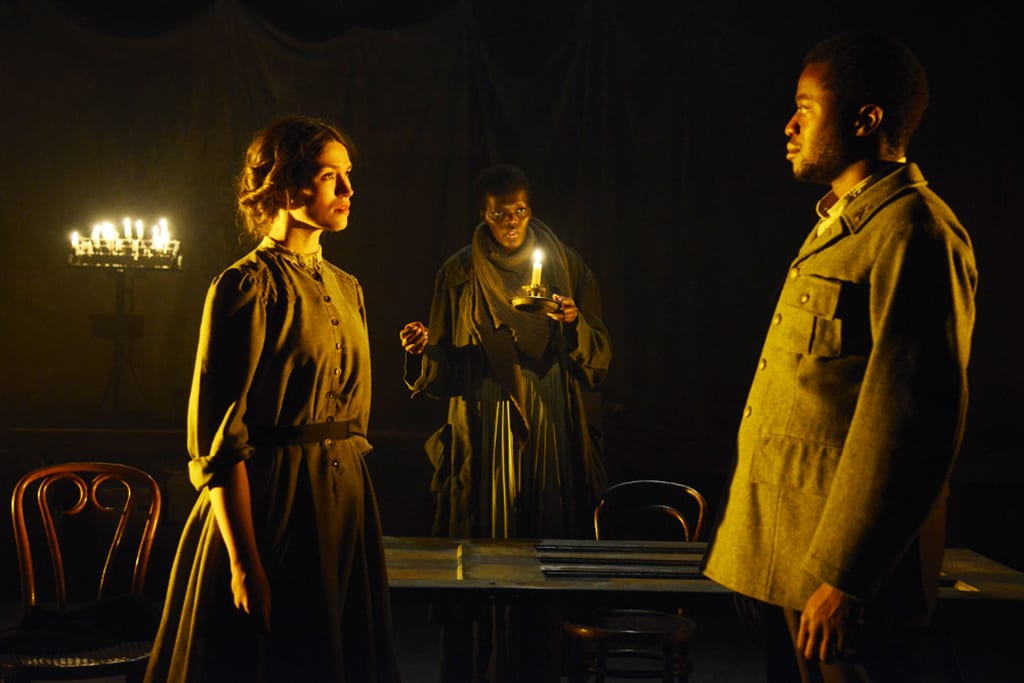Glyn Maxwell’s adaptation of Karen Blixen’s understated short story Babette’s Feast brings a freshly stirred account of artistry and communion to the stage. Housed in the Print Room at the Coronet, this ensemble piece transports the audience to nineteenth century Norway, where a remote fishing village are greeted by a talented and scrupulously humble French refugee, our titular protagonist.
The production relies heavily on ambience and atmosphere, with character development and chronological signposting lacking in application and consistency. For those not familiar with the original tale (I included), the adaptation, along with Bill Buckhurst’s direction, is alienating and confusing to say the least. This lack of coherence, along with at times overdone and nuance-less dialogue impacts hugely on the overall delivery of the narrative. The fluidity of the play is hindered by extensive scenes early on with seemingly little relevance to the bulk of the narrative, which subsequently feels a little rushed.
Despite its flaws in translation and consistency, the quality of acting is undoubtedly second-to-none, with Joseph Marcell demonstrating intrinsic charisma and jocularity as Lorens Lowenheilm, Whoopie Van Raam shining in her debut role as the young Martine, and Sheila Atim embodying Babette with unassuming yet magnetic gravity. There are glimmers of euphoric beauty when music is incorporated to the production, and it’s a real shame that these moments are so few, as the cast evidently have musical skill in abundance. As the plot turns to Babette’s lottery win and subsequent provision of a communal feast, the sensorial and creative aspects of food preparation come to the forefront and deliver an exciting and stimulating edge to what has otherwise been a slightly inaccessible and lacklustre context thus far. The choreography of cooking is executed with flair and synchronisation, and although the physical presence of food is left to the imagination, Atim invokes enough reality to get stomachs rumbling.
The story of Babette’s Feast is remarked upon for its simple but universal commentary on spirituality, community, culture and identity, but unfortunately these concepts get lost amongst a sea of abstract transitions and overly-jovial dialogue. Universal themes become more difficult to grasp, and less relevant, when characters are difficult to relate to. Despite its technical evocation and talented cast, the poor translation of storytelling is where this Babette’s Feast tastes disappointingly sour.

